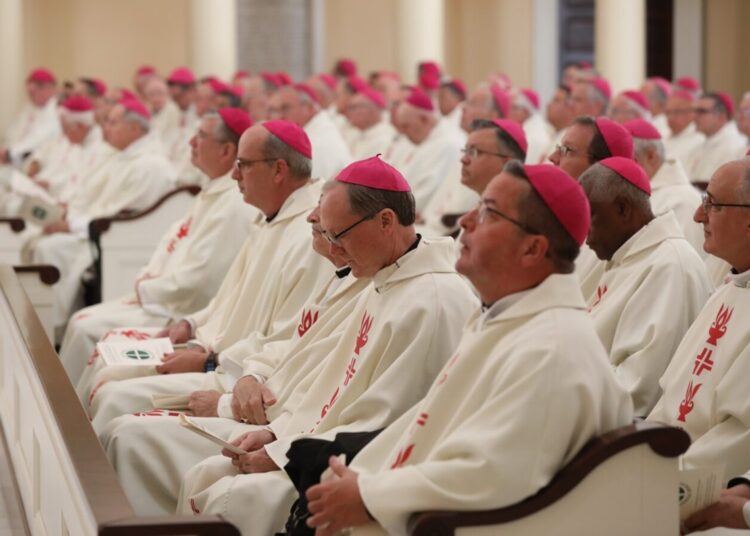The United States Conference of Catholic Bishops urged Joe Biden’s administration on Tuesday to remove Cuba from the list of state sponsors of terrorism and begin the path of mutual understanding.
In a letter addressed to Secretary of State Antony Blinken, the president of the Justice and Peace Committee, Bishop Elías Zaidan, reaffirmed the position of the Conference that, together with the Holy See and governments and international organizations, have also demanded the lifting of Washington’s embargo/blockade on the Caribbean nation, Prensa Latina (PL) news agency reported.
The episcopal statement recalled that in 2021, when the Trump administration designated Cuba as a state sponsor of terrorism, the U.S. bishops expressed their profound disagreement and emphasized their “longstanding support for strong bilateral cooperation for the good of the U.S. and Cuban peoples.”
“For decades, in conjunction with the Holy See and the majority of the international community, the United States Conference of Catholic Bishops has urged collaboration and mutually beneficial relations,” the text emphasized.
“I urge you, Mr. Secretary, to remove Cuba’s designation as a State Sponsor of Terrorism, and to maximize our country’s engagement for the good of the Cuban people,” concluded the letter signed by Bishop Zaidan.
This statement joins the broad claim of religious leaders, churches, and faith-based organizations who see the inclusion of Cuba on the list of terrorist countries as a coercive measure contrary to the ethics of their religious confessions, PL reported.
Founded in 1966, the United States Conference of Catholic Bishops (USCCB) is an assembly of the hierarchy of the Catholic Church in the country and the U.S. Virgin Islands, headed by Archbishop Timothy P. Broglio.
All active and retired diocesan bishops, coadjutor bishops, auxiliary bishops and other bishops who hold a special office by mandate of the Apostolic See belong to the USCCB.
According to the United States Religion Census, carried out by the Association of Statisticians of American Religious Bodies every 10 years, as of 2020 there were 61.9 million Catholics in the United States. This represents 18.7% of the population.
Days before concluding his mandate, in January 2021, Trump reintroduced Cuba to the unilateral list of State Sponsors of Terrorism, which was removed in 2015 during Barack Obama’s administration, as part of the historic “thaw” between both countries.
Despite calls from both inside and outside U.S. territory to exclude Cuba from that list, the Biden administration has not modified the status quo and the measure, with strong commercial and financial implications for the island, remains in place.
Blinken says there are no plans to remove Cuba from list of sponsors of terrorism
WOLA, observations
The SSOT list can be an important tool to counter global terrorism. Still, its application in the case of Cuba is ― at best ― questionable, WOLA, a Washington-based organization, a leader in research and advocacy that promotes human rights in the Americas, assessed last year.
According to WOLA, the acronym for Washington Office on Latin America, beyond serving as a workhorse in the political arena, the designation also has tangible effects that make life more difficult for the people of Cuba, both inside and outside the island.
It added that the Biden administration should make good on its promise to remove Cuba from the list, as the human cost of the designation continues to become more evident.
According to the entity, the inclusion of Cuba on the list far exceeds the intentions of isolating the island’s armed forces, and labeling the country as an adversary.
WOLA stated that in line with statements from the island’s authorities themselves, the most atrocious consequences derive from the greater risk associated with any humanitarian aid, business, investment, and trade that involves Cuba and, by extension, Cuban citizens.










